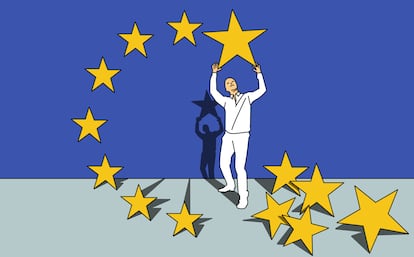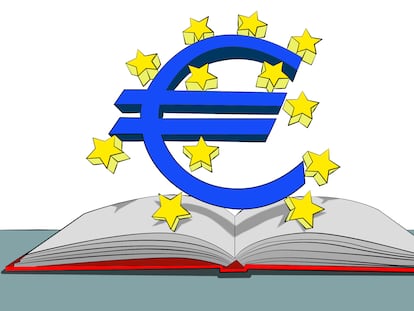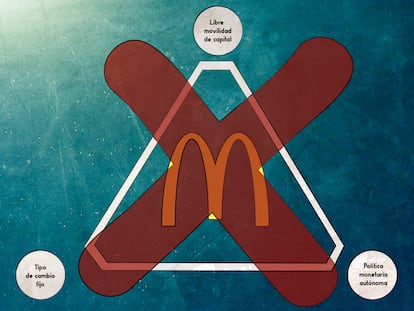Resetting the European Union
The EU must now defend itself from the external enemy and stop protecting itself from itself; that goes through solidarity investment

Paraphrasing Lenin, there are decades in which nothing changes, and weeks in which everything changes. The week of February 24, when Russia invaded Ukraine, changed Europe, accelerating global structural transformations that had been simmering for years. Half a year later, it is clear there will be no turning back.
The European Union was created as an instrument of defense against itself, to neutralize the military temptations of the European powers, pooling coal and steel and then creating the common market, with the euro as its ultimate manifestation. Lacking a budget and an army, the European Union leveraged its growth and influence on fiscal discipline and globalization, promoting deregulation, trade agreements, and offshoring. It was an optimal strategy given the circumstances, but it created a strong economic and energy dependence on the rest of the world. These premises have now lost value with the return of protectionism and industrial policy in the Western world, the growing Chinese assertiveness and the rise of illiberal democracies, and geopolitical re-regionalization. The European Union must be reset to adapt to this new world.
The resetting must be based on three concepts: the priority must now be the defense against the external enemy, not the internal one; to achieve this, the focus must be on investment and resilience, not on saving; and, to make it politically sustainable in the long term, it must be accepted that intra-European solidarity is cyclical and depends on the nature of the shock, not determined by geography or a specific economic model. In essence, it implies a new balance between efficiency and resilience, between market and state, between center and periphery.
The European Union’s defense of itself has generated thousands of pages of rules and decisions to ensure that its member states abide by internal rules. A good example is the vademecum of the Stability and Growth Pact, more than a hundred dense pages whose primary objective is to sanction countries that do not comply with it and that only a dozen people fully understand.
Now the EU must apply the same zeal and intensity to the defense against the external enemy. The basis of the strength of the EU – the soft power of the so-called “Brussels effect,” based on the large size of its economy and the magnetic effect of the prospect of joining the EU that creates a powerful and wide area of influence – has weakened. In this new world, the key drivers are military capacity, energy independence and resilience in the face of financial sanctions.
Soft power is not enough, and neither is fiscal discipline as an economic strategy. Defense against the external enemy requires three levers: abundant (and smart) public investment to foster technological resilience, energy independence and the climate change strategy, and military sufficiency; a robust economic policy framework where fiscal policy is not focused solely on debt reduction but complements monetary policy in managing the business cycle; and a credible currency, comparable to the dollar, that is accepted globally as a means of payment and a safe asset. The NextGenerationEU (NGEU) plan advances this agenda, but it mustn’t stop there, it must be extended to finance energy and technological independence, and be completed with an in-depth reform of European fiscal rules that makes them more flexible and dynamic, adapted to this new world.
Defense against the external enemy also requires a reform of the energy policy that’s fit for the new times. It was already clear last fall, when Spain proposed joint energy purchases and warned that the marginalist pricing system was no longer adequate for a world in which the price of the marginal energy, natural gas, incorporated Russian geopolitical risk. But the stubbornness in Brussels and the opposition of some European partners, who hid behind the defense of the market design the protection of a wide variety of national interests, has delayed a year the adoption of measures that could have cushioned, had they been adopted earlier, the inflationary spiral and the likely recession in the eurozone. The energy plan recently presented by the European Commission goes in the right direction. Better late than never.
The defense against the external enemy requires a solidary energy union that diversifies energy sources and increases European interconnection, putting aside national interests – such as the French refusal to expand the MidCaT gas interconnection to continue protecting its industry. Solidarity requires sacrifice, but for it to be politically sustainable in the long term it is crucial to accept its cyclical dimension: solidarity depends on the type of shock affecting the economy, and thus its expression changes over time. The periphery has not always been the weak point of the European Union.
Germany was the sick man of Europe when the euro was introduced, and European solidarity manifested itself, among other things, in interest rates low enough – too low for some countries, in fact – for the German economy to recover. German banks were also the hardest hit by the US mortgage crisis, receiving state aid and emergency liquidity from the ECB without conditionality. The pendulum swung rapidly as the Greek fiscal fraud was exposed and financial and political bubbles in the eurozone periphery burst, and robust growth in the global economy allowed an excessive focus on austerity and risk reduction. The pandemic, whose global nature made it impossible to trust the recovery to the rebound in foreign demand, served to recognize that the solution lies in internal strength, manifested in the NGEU and the Eurobonds that finance it.
Now the pendulum has swung again. The energy crisis has hit the foundations of the competitiveness of the German economy, which has once again become the sick man of Europe and has been rescued. European energy savings have increased in solidarity, and the restrictions on state aid have been relaxed so that it can sustain its energy and banking sectors.
The peace dividend of the post-war period is evaporating, Europe cannot count on Russian energy, the challenge is enormous. The resetting of Europe must be built on solidary investment, so that this year’s sacrifice is worth it and the future only depends on ourselves.
Tu suscripción se está usando en otro dispositivo
¿Quieres añadir otro usuario a tu suscripción?
Si continúas leyendo en este dispositivo, no se podrá leer en el otro.
FlechaTu suscripción se está usando en otro dispositivo y solo puedes acceder a EL PAÍS desde un dispositivo a la vez.
Si quieres compartir tu cuenta, cambia tu suscripción a la modalidad Premium, así podrás añadir otro usuario. Cada uno accederá con su propia cuenta de email, lo que os permitirá personalizar vuestra experiencia en EL PAÍS.
¿Tienes una suscripción de empresa? Accede aquí para contratar más cuentas.
En el caso de no saber quién está usando tu cuenta, te recomendamos cambiar tu contraseña aquí.
Si decides continuar compartiendo tu cuenta, este mensaje se mostrará en tu dispositivo y en el de la otra persona que está usando tu cuenta de forma indefinida, afectando a tu experiencia de lectura. Puedes consultar aquí los términos y condiciones de la suscripción digital.
More information
Últimas noticias
Tiger Woods turns 50: Will he continue playing on the PGA Tour or take a back seat?
The surreal journey of James Nnaji, the Barcelona youth player selected in the NBA Draft who ended up in the NCAA
Trump claims peace in Ukraine is near, but Moscow suggests otherwise
A survivor’s account of the Interoceanic Train accident: ‘We were scared because of the speed on the curve’
Most viewed
- Oona Chaplin: ‘I told James Cameron that I was living in a treehouse and starting a permaculture project with a friend’
- Reinhard Genzel, Nobel laureate in physics: ‘One-minute videos will never give you the truth’
- Sinaloa Cartel war is taking its toll on Los Chapitos
- Why the price of coffee has skyrocketed: from Brazilian plantations to specialty coffee houses
- Chevy Chase, the beloved comedian who was a monster off camera: ‘Not everyone hated him, just the people who’ve worked with him’











































